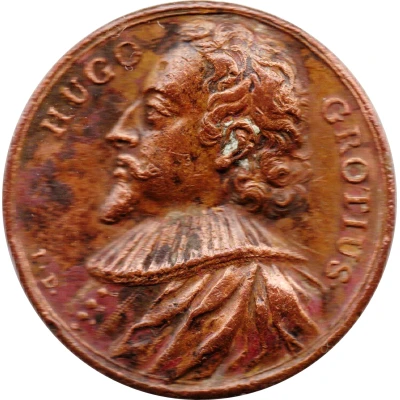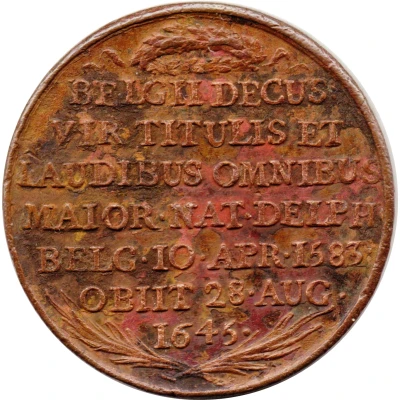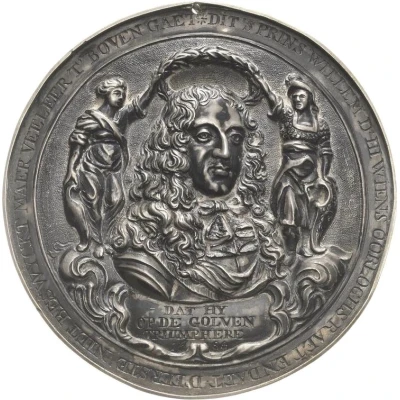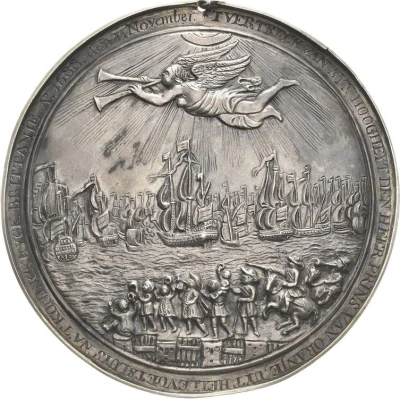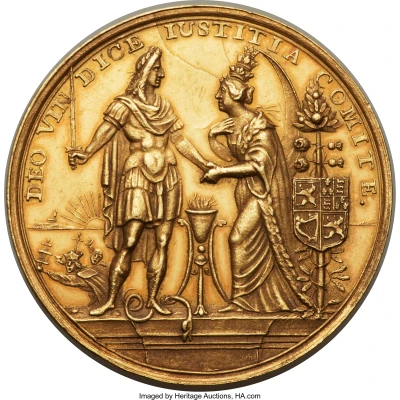
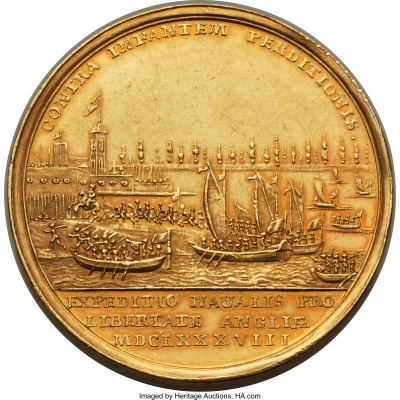

© Heritage Auctions
Medal - James II Landing of William of Orange at Torbay
1688 year| Gold | 60 g | 49 mm |
| Location | Dutch Republic (Netherlands) |
|---|---|
| Ruling authority | William III, Prince of Orange (Willem III van Oranje) (1672-1702) |
| Type | Medals › Commemorative medals |
| Year | 1688 |
| Composition | Gold |
| Weight | 60 g |
| Diameter | 49 mm |
| Shape | Round |
| Technique | Milled |
| Demonetized | Yes |
| Updated | 2024-11-14 |
| Numista | N#126052 |
|---|---|
| Rarity index | 100% |
Reverse
Troops disembarking from their boats near a fortified harbor, with numerous large fleets on the horizon,
Script: Latin
Lettering: CONTRA INFANTEM PERDITIONIS EXPEDITIO NAUALIS PRO LIBERTATE ANGLIAE. MDCLXXXVIII
Engraver: Regnier Arondeaux
Comment
James II Satirical gold Medal on the Landing of William of Orange at Torbay 1688 AU58 NGC, Eimer-298. 49mm. 60gm. Unsigned by R. Arondeaux. The obverse foreground depicts William as emperor with raised sword and serpent underfoot as his royalty holds the arm of Britannia, flanked by her shield ornamented with roses and thistles. In the background we see Jesuit Edward Petre fleeing with a young Prince James on his back holding a windmill, legend DEO VIN DICE IUSTITA COMITE. surrounding. The intricately designed reverse depicts troops disembarking from their boats near a fortified harbor, with numerous large fleets on the horizon, legend CONTRA INFANTEM PERDITIONIS surrounds with EXPEDITIO NAUALIS PRO LIBERTATE ANGLIAE. MDCLXXXVIII in exergue.It is known that Edward Petre served as religious counsel to James II, and the depiction of a young Prince James holding a windmill quite possibly refers to the struggle between them since James II--a Catholic ruling over Protestants--blamed Petre for his failures. Ultimately, James II fled England when his Protestant son-in-law, William of Orange, invaded in the Glorious Revolution of 1688, thus securing the English throne for himself and his wife, ruling as William and Mary.
